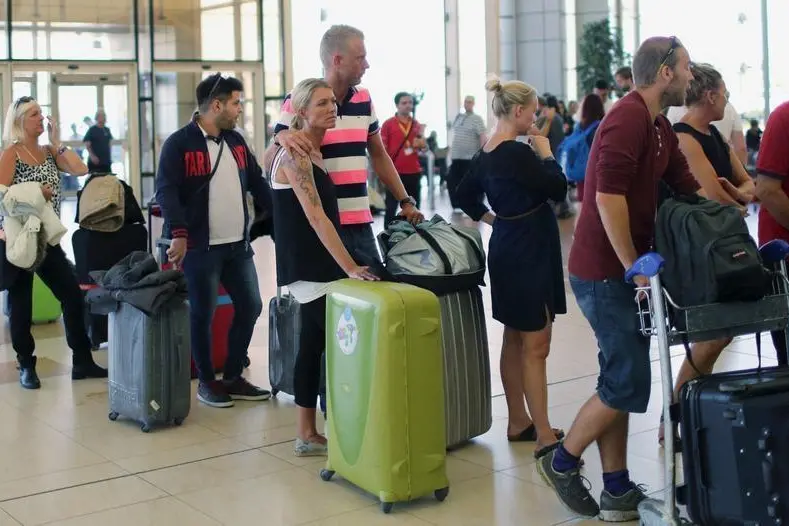PHOTO
Prime Minister Mostafa Madbouly held discussions on Tuesday with Minister of Tourism and Antiquities Khaled El-Anany and Minister of Civil Aviation Mohamed Enaba, on the possible resumption of international flights and tourism.
During the meeting, El-Anany reviewed the situation of hotels that have a health and safety certificate in Cairo, Ain Sokhna, the Red Sea, South Sinai, Alexandria, and the North Coast.
El-Anany highlighted the hotel occupancy rates during the Eid Al-Fitr holiday, with Alexandria and Ain Sokhna boasting the highest occupancy rates of 25% each. They were followed by the Red Sea and Greater Cairo governorates, followed by South Sinai and finally Matrouh and the North Coast.
During the meeting, the measures taken by some countries to resume international tourism and flights were reviewed to determine the success rate in curbing the spread of the coronavirus (COVID-19). The ministers also discussed whether to implement measures that are compatible with the nature of Egypt`s tourism potential and capabilities.
El-Anany presented procedures for receiving incoming tourism, whether as general requirements or as procedures that are required before tourist arrivals. These procedures would take place on the plane, upon arrival, and during their stay in Egypt.
Further procedures for operating airports and restaurants and organising visits to ancient sites were also discussed.
Minister of Civil Aviation Mohamed Enaba presented the preparations and procedures that have been implemented at various airports, to resume movement of flights.
He mentioned that all the precautionary and preventive measures implemented internationally have been implemented in Egypt. Domestic flights remain in operation, and maintain their high efficiency.
At the end of the meeting, the Prime Minister said the higher committee for coronavirus crisis management will be consulted on the resumption plan of international flights and tourism before making any decision in this regard.
The world is slowly opening up again, as the World Tourism Organization (UNWTO) stated in its latest report that up to 3% of global destinations have now taken steps to ease travel restrictions.
UNWTO reveals that seven destinations have eased travel restrictions on international tourism. At the same time, several more destinations are engaged in significant discussions about the reopening of borders.
The UN agency had earlier released its Global Guidelines to Reopen Tourism, which set the steps that governments and the private sector can take to accelerate the recovery of tourism in the coming period.
UNWTO notes that 100% of all destinations worldwide continue to have some form of coronavirus-related travel restrictions in place.
Furthermore, as of 18 May, the report said that 75% of all destinations continued the complete closure of their borders to international tourism.
“In 37% of cases, travel restrictions have been in place for 10 weeks, while 24% of global destinations have had restrictions in place for 14 weeks or more,” according to UNWTO.
A total of over 65% of UNWTO region destinations are completely closed to tourism, namely Africa (74%), the Americas (86%), Asia and the Pacific (67%), Europe (74%), and the Middle East (69%).
“The timely and responsible easing of travel restrictions will help ensure the many social and economic benefits that tourism guarantees will return in a sustainable way. This will contribute to the livelihoods of many millions of people around the world,” UNWTO Secretary-General Zurab Pololikashvili said. ”The sector is a driver of sustainable development and a pillar of economies. UNWTO stresses the need for vigilance, responsibility, and international cooperation as the world slowly opens up again.”
© 2020 Daily News Egypt. Provided by SyndiGate Media Inc. (Syndigate.info).





















